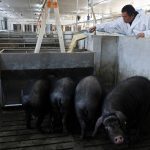Up on the shelf where we keep light bulbs of assorted sizes and wattages, I just happened across an old compact fluorescent lamp (CFL) — remember, those bulbs that looked like an Arby’s curly fry wrapped in thin white glass? Talk about a relic from a bygone time in western civilization when, it seemed, the […] Read more













